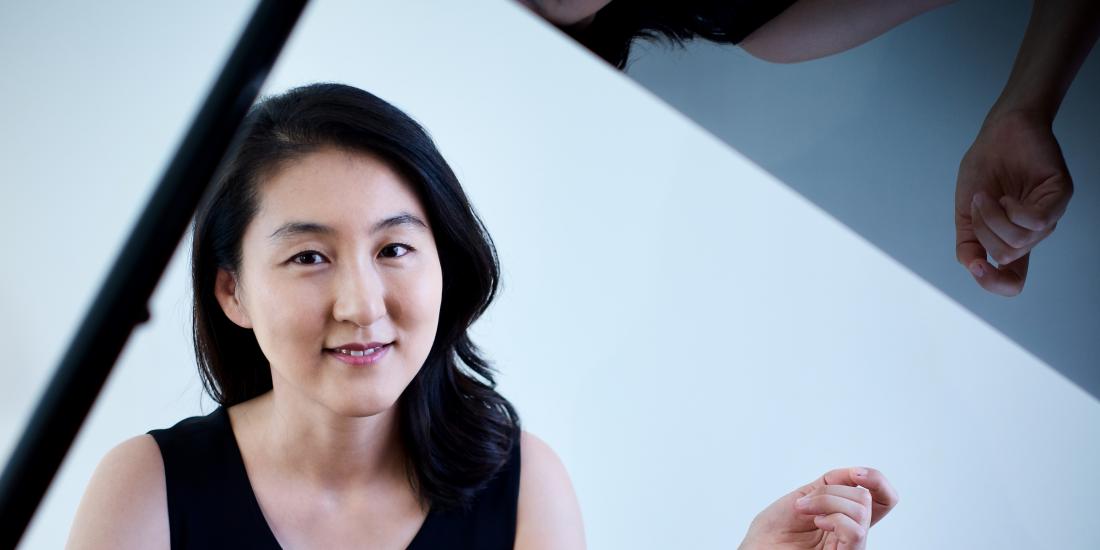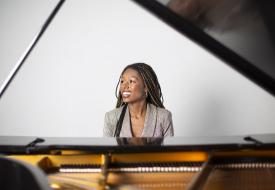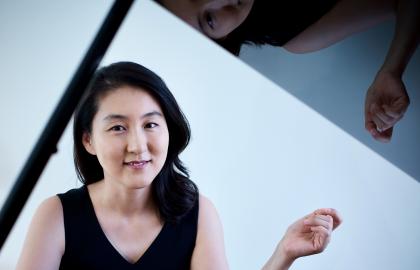You were born in South Korea, studied in Seoul, and then in Belgium. Why did you choose this little European country?
I came to Belgium in 2015, along with my husband who had a career opportunity in Brussels. Living in Belgium, I could have artistic experiences in both music and the fine arts. This motivated me to pursue a Master’s course in Piano at the Flemish Royal Conservatory of Brussels, and this is how I met Professor Boyan Vodenitcharov, who inspired me to expand my musical ability in a more enjoyable way.
Many Korean musicians come to the Brussels Conservatories. Why such an enthusiasm for these institutions?
The Royal Conservatories of Brussels invest a lot in the excellence of their faculties. The saxophone quartet students, for example, decided to study here because they wanted to study with Professor Vincent David, one of the best saxophone players in the world, who joined the Royal Conservatories of Brussels in 2019.
Why do Koreans have such a great interest in Western classical music?
For the general public, classical music has been popular for a long time. I think western classical music is no longer only for western audiences, but has become an international culture, just like we eat pizza everywhere, even though it was invented in Italy. As a classical musician, I am happy with this trend, as it means more people appreciate classical music.
And what about Korean musicians?
I cannot talk about the high interest in classical music in Korea without mentioning the efforts and achievements of the previous generation of musicians, such as the well-known violinist Ms. Chung Kyung-Wha. Since then, more and more Korean musicians have finished their studies abroad and provided higher-level concerts and teaching opportunities. The multiple awards won by Korean musicians in prestigious competitions have inspired and motivated the next generation of musicians. Additionally, musical institutes in Korea have established young talent development programmes that provide an effective education to the next generation.
Is there something like a "Korean spirit" in the way of understanding, playing and approaching this music?
I think this question reflects the current situation, in which many Korean musicians have won prestigious music competitions, including the Queen Elisabeth Competition. I would like to introduce the Belgian documentary, Korean Classics Generation [by Thierry Loreau], which answered this question as follows: a prestigious music competition is above all the most effective way for Korean musicians to enter the international mainstream of classical music. For them, a music competition award is an important qualification to continue their career as a professional performer in Korea, where the size of the classical music market is smaller than in Europe or the USA. In my opinion, the Korean spirit is about the intense passion, hardworking culture and discipline to develop and improve their music further.
You are coaching students in preparation for this concert. How do you guide them?
My role is to give them advice and different perspectives from outside and to help them have a more holistic view of their music.
Is such work nourishing for you?
As a pianist, it is an unusual experience to work with a saxophone quartet. To be able to help them more effectively, I have listened to a lot of saxophone music and found that saxophone ensembles are colourful and fascinating. It was a great opportunity to expand my view on the different instruments and their music that I haven’t had before.
Which are the greatest qualities of these young musicians?
They know how to express their ideas and thoughts confidently. They address their opinions on music without fear, but they also respect different ideas. They understand how to communicate and how to harmonise among themselves – the most important factors in the ensemble.
Why should the public come to their concert?
Brahms' Handel Variations are not often performed in concert and, furthermore, the saxophone quartet is not the usual formation you might come across. The diverse genres, from romantic Brahms to the style of jazz from George Gershwin, will be an interesting experience for all audiences.
Although there are many Korean musicians studying at the Royal Conservatories of Brussels, there are few opportunities for them to perform in such large concerts, especially in Belgium. Many musicians, including myself, have realised how precious it is to have a chance to perform for such audiences. Your presence will be a great cheer for these young musicians, and, in return, we will give you our best music to heal your soul.


